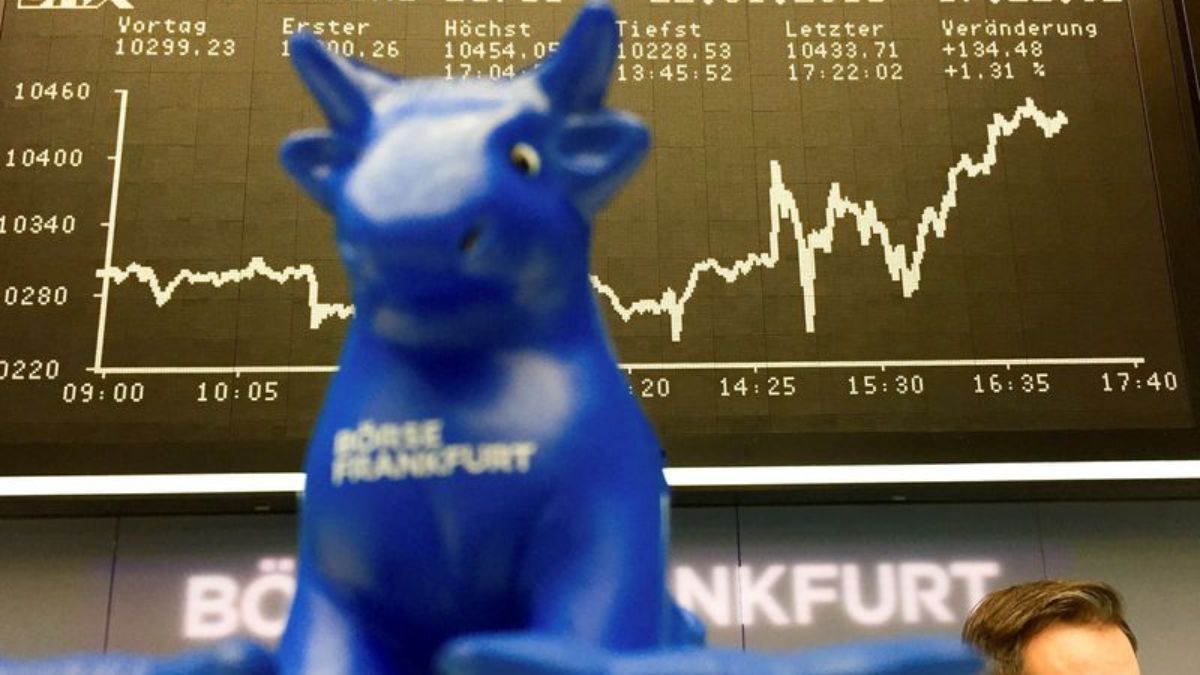European markets ended the week in the red on Friday as investors digested fresh inflation readings from major economies across the region while also bracing for the U.S. Federal Reserve’s preferred inflation gauge.
Germany’s DAX index fell 0.5%, France’s CAC 40 lost 0.8%, and London’s FTSE 100 slipped 0.3%, extending a cautious tone across equity markets.
Data released Friday showed French consumer prices rose slightly less than expected in August, with the harmonised index of consumer prices climbing 0.8% year-over-year, down from 0.9% in July. Spain’s inflation, measured on the same EU-harmonised basis, held steady at 2.7% in August, while Germany’s numbers were due later in the day. A broader euro area flash estimate will be published next week.
The readings come at a delicate moment for the European Central Bank. The ECB held interest rates steady at 2% in July, noting that growth remained resilient even as inflation hovered close to its 2% target. Policymakers are expected to keep rates unchanged again in September, but minutes from their last meeting revealed divisions on whether inflation risks tilt to the upside or downside in the months ahead.
Attention later shifted to the U.S., where the latest personal consumption expenditures (PCE) data was released. The core PCE index, the Fed’s preferred inflation gauge, rose 0.3% in July, lifting the annual rate to 2.9%, the highest in five months. The stronger reading is likely to reinforce debate over how long the Fed should keep policy restrictive.
In company news, French cognac maker Remy Cointreau raised the lower end of its annual outlook after a transatlantic trade deal eased tariff pressures. Under the new agreement, tariffs on European wines and spirits were cut in half to 15% from a planned 30% starting August 1, a relief for exporters hit by trade tensions in recent years.
Elsewhere, Norway’s Af Gruppen reported a sharp increase in second-quarter profit, while Swedish property firm Sagax announced it had acquired a 10.8% stake in Belgium’s Retail Estates, signaling continued dealmaking in Europe’s real estate sector despite higher financing costs.
Crude oil prices edged lower on Friday but remained on track to post small weekly gains. By midday in New York, Brent futures were down 0.4% at $67.69 a barrel, while U.S. West Texas Intermediate slipped 0.5% to $64.28.
Both contracts are set for gains of just under 1% for the week, supported by concerns over Russian supply after Ukrainian attacks on export terminals. However, the lack of progress in peace talks, coupled with the approaching end of the U.S. summer driving season after the Labor Day holiday, weighed on demand expectations.
On a broader basis, crude is still set to close the month more than 6% lower, reflecting steady output increases from OPEC and ongoing worries about the global growth outlook.


